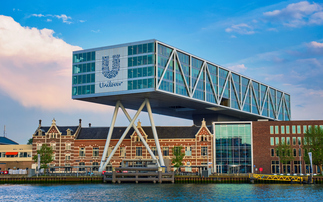Petrochemicals giant, which is majority owned by Saudi Arabia, unveils green targets as part of SDG-aligned sustainability roadmap
Saudi petrochemicals giant SABIC has unveiled a raft of new green targets covering climate action, water use, and the circular economy as part of a strategy it has built around the UN Sustainable Development Goals.
The company, which is majority-owned by Saudia Arabia's ruling royal family, said its 'Sustainable Development Roadmap 2019' spanned its entire supply chain. It includes new pledges on a host of issues, including sourcing more sustainable feedstock and boosting energy efficiency across its operations.
Announced on late last week, the roadmap "articulates a holistic approach to sustainability", the company said, adding that it was well placed to help advance the SDG agenda as its products are used across a range of sectors including transport, packaging, healthcare, agriculture, and construction.
The roadmap forms part of SABIC's wider environmental strategy, through which it has committed to reducing its energy consumption, greenhouse gas emissions, and water usage by 25 per cent by 2025, against a 2010 baseline.
It also developing a process through which it hopes to turn mixed plastic waste back into the original polymer for use in new products in order to help build a more circular economy, the firm explained.
Bob Maughon, executive vice president sustainability, technology and innovation at SABIC, said he welcomed the "opportunity to strategically align our business with the UN's SDGs".
"With the SDGs enabling a framework to translate the world's most urgent challenges into actionable solutions, those organizations that put advanced product design and innovation at the forefront of their business strategy can not only help achieve these vitally important goals, but they can also benefit from the significant opportunities created by new and changing market demands," he added.
SABIC is one of the world's largest chemicals producers, active in petrochemicals, industrial polymers, fertilisers and metals, among other areas. Seventy per cent of its shares are owned by Saudi Aramco, the Middle East nation's state-owned oil company.
The SDG strategy follows criticism of Saudia Arabia last week over its role in blocking last year's seminal IPCC report looking at the impacts of 1.5C of global warming from playing a role in formal UN climate negotiations going forward.
Put together by the world's top climate scientists and published last Autumn, the IPCC report warned the world had only until 2030 to take rapid and drastic action to decarbonise if it is to have a chance of keeping temperatures within the 1.5C threshold.
However, Saudi Arabia, as well as the US, Kuwait, and Russia had all refused to endorse the report at last year's COP24 summit in Poland, and after further talks last week failed to reach agreement, it leaves no way forward for the report to be considered further in formal negotiations, Climate Home News reported.







